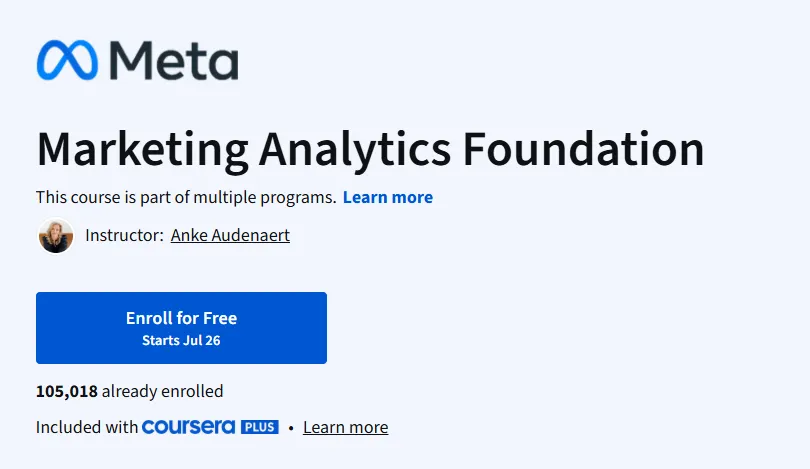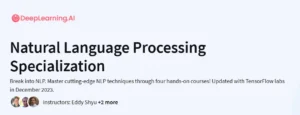Marketing Analytics Foundation
A practical beginner course to master the basics of marketing analytics and make smarter, data-driven marketing decisions.
What will you learn in Marketing Analytics Foundation Course
- Understand core marketing analytics concepts and their impact on business decisions.
- Learn how to measure and optimize marketing campaigns using data.
- Interpret key metrics like ROI, customer lifetime value, and conversion rates.
- Use real-world datasets to analyze marketing effectiveness.
Program Overview
Module 1: Introduction to Marketing Analytics
⏱️ 1 week
Topics: What is marketing analytics, data-driven marketing, business applications
Hands-on: Review case studies on analytics-driven decisions.
Module 2: KPIs and Metrics in Marketing
⏱️ 1 week
Topics: Conversion rates, ROI, impressions, reach, engagement
Hands-on: Calculate and interpret marketing metrics using simple spreadsheets.
Module 3: Understanding Customer Behavior
⏱️ 1 week
Topics: Customer journey, acquisition, retention, lifetime value
Hands-on: Analyze customer data to identify profitable segments.
Module 4: Data-Driven Decision Making
⏱️ 1 week
Topics: A/B testing, dashboards, predictive modeling basics
Hands-on: Build a basic analytics dashboard to track performance.
Get certificate
Job Outlook
Marketing analysts are in high demand across industries.
Roles include marketing data analyst, growth marketer, and performance marketing manager.
Salary range: $55K–$95K+ based on experience and tools used.
Analytical skills open paths in digital marketing, e-commerce, and consulting.
- Beginner-friendly with clear explanations
- Real-world case examples
- Focuses on business-relevant metrics
- Limited technical tools (e.g., no Python/R)
- Not project-heavy
Specification: Marketing Analytics Foundation
|
FAQs
- No prior marketing or analytics experience is required; the course introduces foundational concepts.
- Basic familiarity with spreadsheets or numbers is helpful but not mandatory.
- Step-by-step lessons cover data-driven decision making and metrics.
- Hands-on exercises allow learners to analyze marketing datasets.
- Beginners can gradually develop confidence in applying analytics to marketing problems.
- The course covers key metrics, data collection, and reporting techniques.
- Learners practice analyzing data to derive actionable insights.
- Real-world case studies illustrate how analytics informs marketing strategies.
- Step-by-step exercises reinforce interpretation and visualization skills.
- Skills gained are directly applicable to marketing analysis roles.
- Learners learn to identify trends and patterns in marketing data.
- Practical exercises show how to prioritize campaigns and optimize performance.
- Insights from data are linked to business objectives and KPIs.
- Knowledge helps improve ROI and campaign effectiveness.
- Skills are relevant for roles in marketing analytics, digital marketing, and strategy.
- Analytics skills are highly valued in modern marketing roles.
- Knowledge improves employability for positions in marketing, analytics, and digital strategy.
- Hands-on projects demonstrate practical ability to potential employers.
- Understanding metrics and insights supports data-driven decision making.
- Completion shows readiness to contribute to marketing strategy and performance analysis.
- Estimated completion is around 2–4 weeks at a part-time pace.
- Weekly effort of 2–4 hours is generally sufficient for lectures and exercises.
- Regular practice in analyzing datasets reinforces learning.
- Revisiting exercises or exploring additional data may require extra time.
- Consistent engagement ensures learners develop both conceptual and practical marketing analytics skills.





